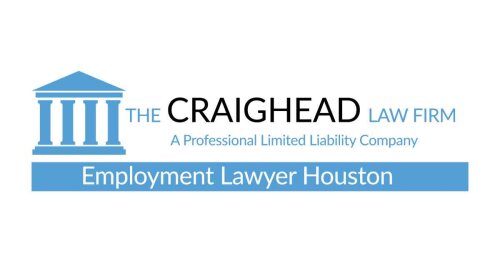Best Sexual Harassment Lawyers in Missouri
Share your needs with us, get contacted by law firms.
Free. Takes 2 min.
Or refine your search by selecting a city:
List of the best lawyers in Missouri, United States
About Sexual Harassment Law in Missouri, United States
Sexual harassment is a form of unlawful discrimination that can take place in workplaces, schools, housing, or other settings. In Missouri, sexual harassment is addressed under both federal and state laws. It includes unwelcome sexual advances, requests for sexual favors, and other verbal or physical conduct of a sexual nature that creates a hostile, intimidating, or offensive environment. Sexual harassment cases are taken seriously due to their impact on individuals’ safety, dignity, and opportunity to work or learn in a fair environment.
Why You May Need a Lawyer
Many people facing sexual harassment might feel isolated, fearful of retaliation, or unsure about how to proceed. An attorney can help in the following situations:
- You feel you are experiencing sexual harassment at work, school, or in housing.
- Your employer or institution fails to address or properly investigate a sexual harassment complaint.
- You have suffered from retaliation such as demotion, termination, or negative evaluations after reporting harassment.
- You are being accused of sexual harassment and need to defend yourself.
- You want to seek compensation for emotional distress, lost wages, or other damages.
Legal guidance can help navigate complex procedures, ensure your rights are protected, and maximize the chances of a favorable outcome.
Local Laws Overview
Missouri law prohibits sexual harassment under the Missouri Human Rights Act (MHRA), which makes it illegal to discriminate based on sex in employment, housing, and public accommodations. The MHRA is enforced by the Missouri Commission on Human Rights (MCHR). The law covers:
- Unwanted sexual advances, requests for sexual favors, and other verbal or physical conduct of a sexual nature affecting employment or academic decisions.
- Conduct that unreasonably interferes with an individual's work or educational performance or creates an intimidating, hostile, or offensive environment.
- Retaliation against someone who files a complaint, participates in an investigation, or opposes sexual harassment.
Federal law, particularly Title VII of the Civil Rights Act of 1964, also provides protections. Claims under Missouri law must generally be filed with the MCHR within 180 days of the alleged incident, while federal claims with the Equal Employment Opportunity Commission (EEOC) usually have a 300-day deadline.
Frequently Asked Questions
What qualifies as sexual harassment in Missouri?
Sexual harassment includes unwelcome sexual advances, requests for sexual favors, inappropriate touching, sexually explicit jokes, comments, images, or any behavior of a sexual nature that creates an intimidating or hostile environment.
Who can be held liable for sexual harassment?
Both individuals and employers or institutions can be held responsible. Employers can be liable if they knew or should have known about the harassment and failed to take prompt action.
What should I do if I experience sexual harassment at work?
Document the incidents in detail and report the harassment according to your employer’s complaint procedures. If your employer does not address your complaint, you may file a charge with the MCHR or the EEOC.
Is retaliation for reporting sexual harassment illegal?
Yes, retaliation such as firing, demotion, or harassment for reporting sexual harassment is illegal under both federal and Missouri state law.
How long do I have to file a complaint?
Typically, you have 180 days from the last incident to file with the MCHR under Missouri law, and up to 300 days with the EEOC under federal law.
Can sexual harassment occur outside the workplace?
Yes. Sexual harassment laws also apply to schools, housing, and certain public accommodations under both Missouri and federal law.
What types of damages can I recover if I win my case?
Possible remedies include reinstatement to your job, back pay, front pay, emotional distress damages, punitive damages, and reimbursement of legal fees.
Do I need to have a lawyer to file a complaint?
No, but having a lawyer can greatly improve your chances of a successful outcome. Lawyers can help navigate complex legal procedures and build a strong case.
Can I be fired for reporting sexual harassment?
Termination for reporting sexual harassment is illegal and considered retaliation. If this happens, you may have an additional claim against your employer.
What is the difference between quid pro quo and hostile work environment sexual harassment?
Quid pro quo involves someone in authority demanding sexual favors in exchange for employment benefits, while a hostile work environment involves unwelcome conduct that creates an intimidating or offensive atmosphere, regardless of any exchange.
Additional Resources
If you need further help or information about sexual harassment in Missouri, consider contacting:
- Missouri Commission on Human Rights (MCHR)
- The Equal Employment Opportunity Commission (EEOC)
- Missouri Bar Association's Lawyer Referral Service
- Local legal aid organizations, such as Legal Services of Eastern Missouri
- National Sexual Assault Hotline (RAINN)
These organizations can provide information, support, and referrals to qualified attorneys or advocates.
Next Steps
If you believe you have experienced sexual harassment in Missouri, document all incidents in detail, gather relevant evidence such as emails or witness names, and review your employer’s policies. File an internal complaint if possible. If your situation is not resolved or if you face retaliation, contact the MCHR or EEOC to file a formal complaint within the required timelines. Consulting with a lawyer experienced in employment law can help you understand your rights, evaluate your case, and take effective legal action. Do not delay seeking help, as legal time limits are strict and missing them can affect your case.
Lawzana helps you find the best lawyers and law firms in Missouri through a curated and pre-screened list of qualified legal professionals. Our platform offers rankings and detailed profiles of attorneys and law firms, allowing you to compare based on practice areas, including Sexual Harassment, experience, and client feedback.
Each profile includes a description of the firm's areas of practice, client reviews, team members and partners, year of establishment, spoken languages, office locations, contact information, social media presence, and any published articles or resources. Most firms on our platform speak English and are experienced in both local and international legal matters.
Get a quote from top-rated law firms in Missouri, United States — quickly, securely, and without unnecessary hassle.
Disclaimer:
The information provided on this page is for general informational purposes only and does not constitute legal advice. While we strive to ensure the accuracy and relevance of the content, legal information may change over time, and interpretations of the law can vary. You should always consult with a qualified legal professional for advice specific to your situation.
We disclaim all liability for actions taken or not taken based on the content of this page. If you believe any information is incorrect or outdated, please contact us, and we will review and update it where appropriate.
Browse sexual harassment law firms by city in Missouri
Refine your search by selecting a city.

















